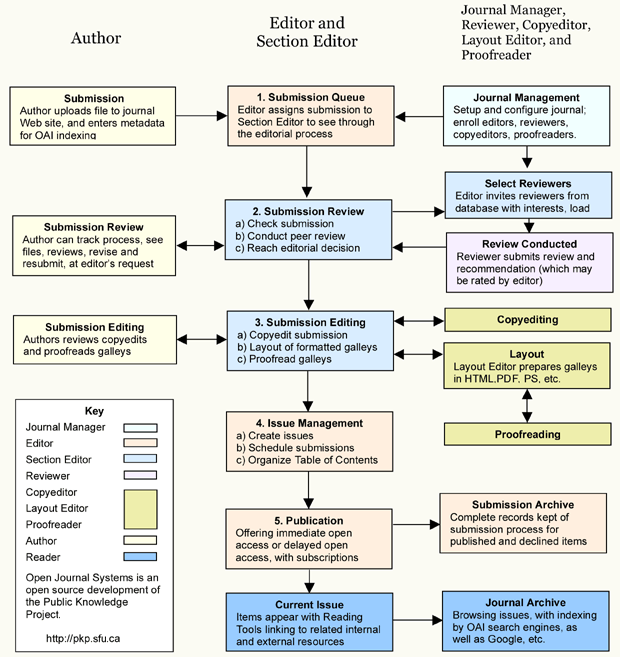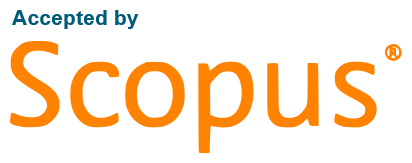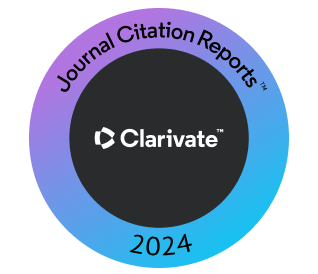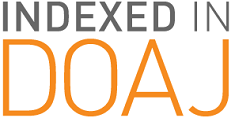
EDITORIAL POLICIES
Aro - The Scientific Journal of Koya University is committed to upholding rigorous editorial policies to ensure the quality, integrity, and impact of the research we publish. Our policies are designed to maintain the highest standards of scholarly publishing and provide a fair and transparent review process for authors.
-
Focus and Scope: Aro welcomes original research articles, review papers, letters, and research elements from various disciplines within the humanities, social sciences, science, and engineering fields. We prioritize research that contributes to the advancement of knowledge, addresses significant questions, and has practical implications for society.
-
Peer Review Process: All submitted manuscripts undergo a thorough and impartial peer review process. Our team of expert reviewers and editors evaluate the scientific merit, methodology, originality, and significance of the research. The double-blind review process ensures confidentiality and impartiality, as the identities of both authors and reviewers are kept anonymous.
-
Ethical Guidelines: Aro adheres to the highest ethical standards in publishing and expects authors to comply with ethical guidelines. We follow the Committee on Publication Ethics (COPE) guidelines and expect authors to conduct research with integrity, avoid plagiarism, and obtain necessary ethical approvals for studies involving human subjects or animals.
-
Open Access and Copyright: Aro operates under an open access publishing model, ensuring that all published articles are freely available to readers worldwide. Authors retain copyright of their work, allowing for broad dissemination and reuse of their findings with proper attribution.
-
Author Guidelines: To ensure consistency and clarity, Aro provides comprehensive author guidelines that outline the formatting, style, and submission requirements. Authors are encouraged to carefully review and follow these guidelines before submitting their manuscripts.
-
Publication Ethics and Misconduct: Aro is committed to addressing any potential cases of research misconduct, such as plagiarism, data fabrication, or unethical practices. We have strict policies in place to handle such cases and will take appropriate action in accordance with established guidelines.
-
Corrections and Retractions: In the event of errors or misconduct in published articles, Aro will promptly investigate and take corrective measures, which may include issuing corrections, clarifications, or retractions, as deemed necessary.
-
Indexing and Impact Factor: Aro aims to be recognized as a reputable journal within the global scholarly community. We strive for indexing in renowned databases and directories, and our goal is to achieve a higher Impact Factor over time.
By adhering to these editorial policies, Aro aims to foster an environment of academic excellence, knowledge dissemination, and collaboration. We invite researchers and scholars from around the world to contribute their high-quality research to Aro - The Scientific Journal of Koya University.
Focus and Scope
ARO - The Scientific Journal of Koya University is a prestigious journal with e-ISSN: 2307-549X, p-ISSN: 2410-9355, and DOI: 10.14500/2307-549X. It is dedicated to publishing original research articles, review articles, and letters to the editor. ARO is a peer-reviewed, open access journal that covers a wide range of disciplines within the fields of Science and Engineering. Since February 2016, ARO has been listed by Clarivate, affirming its recognition and impact in the scientific community.
The aims and scope of ARO Journal are as follows:
-
Advancement of Scientific Understanding: ARO seeks to publish papers that are highly influential within their respective fields or have a significant impact across disciplines. We aim to contribute to the scientific understanding and promote groundbreaking research.
-
Open Access and Peer-Review: ARO is an open access journal that follows a double-blind peer-review process. We encourage the submission of articles in the field of Sciences and Engineering, ensuring that all published works undergo rigorous evaluation by experts in the relevant fields.
-
Acceptance of Various Article Types: ARO Journal welcomes Original Research Articles, Review Articles, and Letters to the Editor. We provide a platform for researchers to share their innovative findings, comprehensive reviews, and important scientific communications.
-
Objective and Scientific Evaluation: ARO evaluates articles based on objective and rigorous assessments of scientific and methodological soundness. Our focus is on ensuring the highest standards of research integrity and quality.
-
Commitment to Excellence: ARO adheres to the highest standards in all aspects of publishing. We emphasize research integrity, ethical practices, constructive peer-review, exemplary production quality, and leading-edge online functionality.
-
Clarification on Scope: While ARO does not accept pre-submission enquiries, authors who are uncertain whether their article fits within our scope can contact us at [email protected] for further clarification.
We invite researchers, scientists, and scholars to contribute their valuable work to ARO - The Scientific Journal of Koya University. By publishing with ARO, authors can showcase their research to a global audience, contribute to scientific progress, and engage in scholarly discussions that shape the future of Science and Engineering.
Screening for Plagiarism
At ARO - The Scientific Journal of Koya University, we take plagiarism seriously and employ effective measures to ensure the originality and integrity of published works. Plagiarism is defined as the practice of presenting someone else's work or ideas as one's own, and it goes against the principles of academic honesty and intellectual integrity.
To detect and prevent plagiarism, we utilize plagiarism detection software. This software compares submitted manuscripts with a vast database of published works, both academic and non-academic, to identify any instances of potential plagiarism.
For a comprehensive understanding of plagiarism, its types, and what constitutes plagiarism, we encourage authors to refer to the Koya University Referencing System. This resource provides detailed information on proper citation practices and avoiding plagiarism.
The Editorial Board of Aro journal thoroughly examines each manuscript for any indication of plagiarism. If plagiarism is detected, whether by the editor or peer reviewer, at any stage of the publication process (including before or after acceptance, during editing, or at the page proof stage), we will promptly bring it to the attention of the author(s).
In such cases, we will request the author(s) to either rewrite the text, accurately quote the original source, and provide proper citation. It is crucial to give credit to the original authors and sources when using their work. Failure to address plagiarism concerns adequately may result in rejection of the manuscript by ARO journal.
We are committed to upholding the highest standards of academic integrity and ethical publishing practices. By actively screening for plagiarism, we strive to maintain the credibility and quality of the research published in ARO - The Scientific Journal of Koya University.
Multiple and Simultaneous Submission/Publication
At ARO - The Scientific Journal of Koya University, we uphold the principles of research integrity and ethical publishing. It is essential to avoid the practice of duplicate submission/publication, which involves submitting or publishing the same work in multiple journals concurrently. This practice is considered unethical as it can lead to exaggerated findings, waste the time of editors, peer reviewers, and readers, and undermine the integrity of scientific research.
In the event that we discover a case of multiple submission/publication, we will initiate communication with the author(s) involved. We will clearly state that the submitted work has already been submitted/published elsewhere and request an explanation regarding this matter. We believe in providing authors with an opportunity to clarify any misunderstandings or unintentional errors.
If the author(s) can provide a sufficient and reasonable explanation for the multiple submission/publication, we will reject the submission without imposing any penalties. We understand that mistakes can happen, and we strive to address such situations with fairness and understanding.
However, if the author(s) fail to respond, provide an unsatisfactory explanation, or admit guilt, we will reject the submission and apply penalties accordingly. These penalties may include:
-
Sending a letter of warning: A formal notification to the author(s) regarding the misconduct and the consequences associated with it.
-
Authors blacklisting: Adding the author(s) to a list of individuals who have engaged in unethical practices, which may impact their future submissions to our journal.
-
Notifying the journal: Informing the journal that previously published the paper about the duplicate publication, as per ethical guidelines.
-
Imposing a reviewing fee: Requesting the author(s) to pay a fee of $200 to cover the costs associated with the reviewing process, considering the additional resources expended due to the multiple submission/publication.
-
Informing the author's superior: Communicating the misconduct to the author's superior or relevant institutional authority, as necessary, to ensure appropriate action is taken.
By enforcing these measures, we aim to maintain the integrity of the research published in ARO - The Scientific Journal of Koya University and promote responsible publishing practices within the scientific community.
Publication Frequency
ARO Journal is published 2 times per year. Accepted papers are published online ahead of print. ARO is e-published online with e-ISSN: 2307-549X as/when process of peer-reviewing in finalized. ARO's hard-copy published with p-ISSN: 2410-9355 biannually with two issues; odd issue that publishes the accepted papers during (January - June) closing on 1st June, and even issue that publishes the accepted articles during (July -December) closing on 1st Dec. The hard-copy of ARO issues are published with all accepted online paper within each publication period.
Article Charges
Artcile Submission Charge:
ARO is an Open Access Journal (OAJ) and has no article submission charges (ASCs).
Article Processing Charge:
ARO is an Open Access Journal (OAJ) and has no article processing charges (APCs). The published articles can be downloaded freely without barrier of admission.
ARO Editorial and Publishing Process











 ARO Journal is a scientific, peer-reviewed, periodical, and diamond OAJ that has no APC or ASC.
ARO Journal is a scientific, peer-reviewed, periodical, and diamond OAJ that has no APC or ASC.